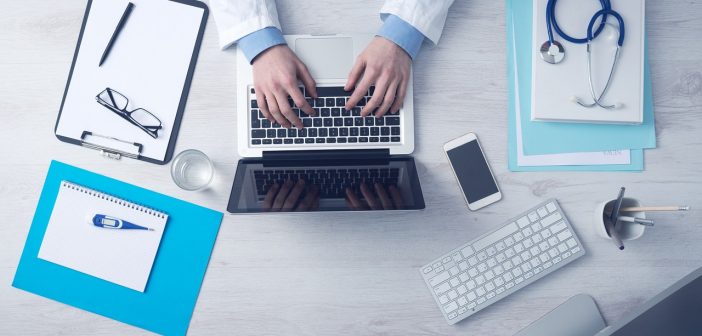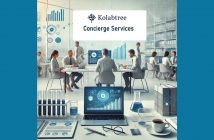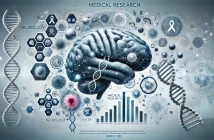The healthcare industry has a plethora of data at its fingertips. However, many are yet to put this data to good use. Here Paul Ricci, a freelance data scientist on Kolabtree, explains some use cases of data science in healthcare and how it can improve research and patient care.
Healthcare services around the world are facing increasing pressures to be more efficient and improve clinical outcomes. Data analytics can be used to inform better decision making on a clinical and operational level and help the industry to meet these demands. Here are some of the main applications of data science in healthcare, along with its impact on research.
1. Clinical trials
A recent study found that the median cost of pivotal clinical trials that lead to drug approval is $19 million. The industry must find ways to increase the efficiency of clinical trials, to reduce this cost. There are several ways that data analytics can be used to increase clinical trial efficiency.
Larger sample sizes: Thanks to recent advancements in data analytics capabilities, clinical trials can now have much larger sample sizes. It is also easier to identify meaningful patterns in data that may otherwise be missed. As a result of these developments, clinical trial data can be more thorough, accurate and reliable, which is important when applying for MHRA or FDA approval.
Better decision making: Data analytics can also support better decision making in clinical trials. We can look at recent trends and predicted outcomes to make better decisions that increase trial efficiency, reduce costs and ensure greater patient safety.
Retrospective studies: In addition, we can use data analytics to make the most of every data set. During old clinical trials, data was not analyzed as thoroughly as it would be now. Retrospective studies are commonly conducted to reanalyze this data using advanced data analytics techniques, which can uncover patterns that were not originally identified. Retrospective studies may also be conducted to test a secondary hypothesis — an affordable way to obtain more information about a drug without collecting more data.
Pro tip: Selection bias in a clinical trial can invalidate the results, so make sure your sample of patients fairly represents the population you are interested in. You can avoid selection bias by comparing the demographics of your sample with census data for the population of interest and ensuring there are no discrepancies. If your sample is biased, it may be possible to correct it by giving under-represented samples more weight than the over-represented samples.
2. Real-time patient monitoring
As the scope of what we can do with data increases, real-time patient monitoring becomes more feasible. The applications of wearable technology in healthcare could monitor patient parameters, such as blood pressure and heart rate, and transmit information to healthcare professionals across the cloud. This could reduce, or even eliminate, the need for regular patient visits and tests, resulting in considerable cost savings and increased clinical trial efficiency.
3. Public health & epidemiology
Natural language processing technology automates the analysis of millions of medical data sets, which makes it easier to predict and prevent disease. For example, information from pharmacies and general practitioners, about prescriptions sold and diagnoses made, can be used to detect a disease outbreak and act quickly to prevent it spreading further.
Biostatisticians (statisticians working with biological and medical data) actively design surveys and assess the impact of public health programmes. Statisticians have historically helped to make important correlations that have impacted the world — for example, the link between smoking and lung cancer.
4. Improving patient care
In the future, electronic health records (EHRs) may be fully digital and connected across the cloud, so that anyone with authorization can access them. Patients could receive alerts when an appointment is due, or test results are available, and healthcare professionals could monitor the health of their patients remotely. However, for this vision to become a reality, there are various data security and confidentiality issues to address.
There are various other use cases of data scientist in healthcare, but the ultimate goal is the same: to improve healthcare research and delivery, make it more accessible and affordable, and accelerate patient care and support.
Privacy concerns
You may have heard the story of how US retailer Target found out a girl was pregnant before she told her father. Target devised a strategy to predict which of its female customers were pregnant based on the items they purchased. It then sent these customers baby-related marketing material in the post. When a 17-year-old from Minnesota received this material, her parents were appalled and filed a lawsuit against Target. The message of this story is to be aware of the potential for unintended consequences of data analytics.
Another example of poor use of data analytics is the recent Cambridge Analytica scandal. The company obtained personal data from millions of people’s Facebook profiles without their consent and used it for political purposes.
Healthcare data is sensitive information that patients entrust governments, private practices, hospitals and healthcare agencies with. If you plan to share people’s data, you must first ensure that they have given you consent to share their data as you intend.
—
Looking to hire a freelance data scientist or a biostatistician? Post your project on Kolabtree and get quotes from experts for free. You can also contact Paul Ricci for your requirement.







